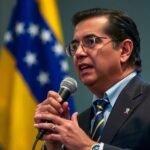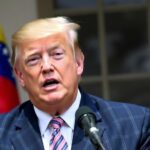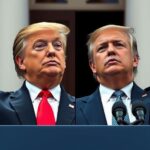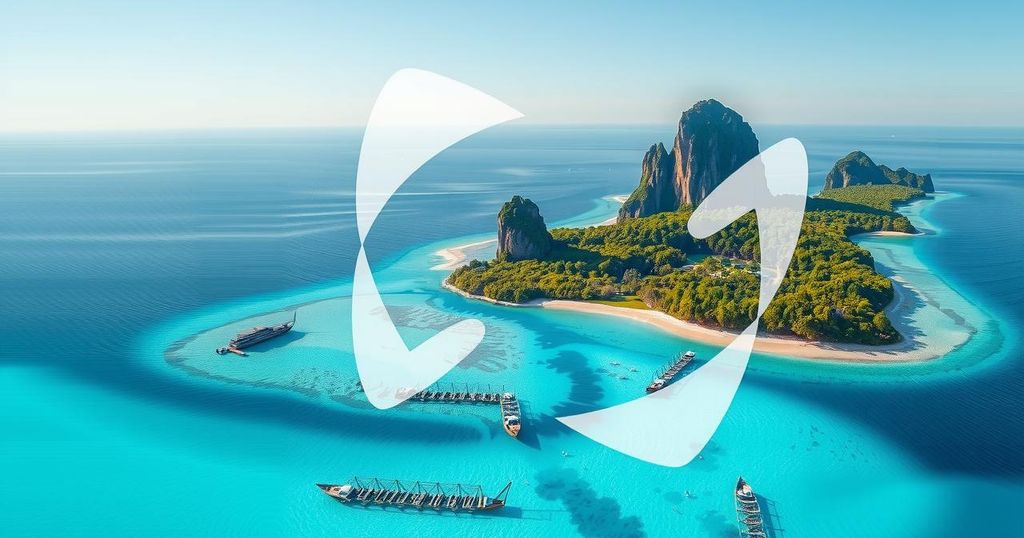Elections
Politics
CANADA, CARTER CENTER, CNN, COLOMBIAN ELECTORAL MISSION, CUBA, DEMOCRACY, DONALD TRUMP, EUROPE, EUROPEAN UNION, GR, MADURO, NORTH AMERICA, POLITICS, PRESIDENTIAL ELECTIONS, RICHARD GRENELL, SOCIAL ISSUES, SOUTH AMERICA, TRUMP, TRUMP ADMINISTRATION, U.S. ELECTIONS, UNITED KINGDOM, UNITED STATES, US, VENEZUELA, WASHINGTON, WHITE HOUSE
Nia Simpson
Six Americans Released from Venezuela Following Trump Envoy’s Meeting with Maduro
Six Americans have been freed from detention in Venezuela, following a meeting between an envoy from President Trump and Venezuelan President Nicolás Maduro. This development occurs amidst ongoing tensions, as the U.S. does not recognize Maduro’s leadership and has enacted various sanctions. As the detainees travel back to the U.S., they expressed gratitude to President Trump and his administration. The meeting also touched on broader issues such as migration and sanctions that affect both countries.
Six Americans detained in Venezuela are on their way back to the United States following a meeting between President Donald Trump’s envoy and Venezuelan President Nicolás Maduro. This development is significant, given that the United States does not recognize Maduro’s presidency, which opposition leaders claim resulted from electoral fraud during last year’s elections. The released detainees’ identities and further details remain undisclosed, although Trump’s special envoy Richard Grenell shared a photo of them on a plane, expressing gratitude for their return.
In his message on Truth Social, President Trump stated, “I’ve just been informed that we are bringing six hostages home from Venezuela. Thank you to Ric Grenell and my entire staff. Great job!” Grenell also revealed that four of the released Americans were dressed in light blue attire typical for Venezuelan prisoners. Furthermore, he noted that the detainees expressed their gratitude to President Trump shortly after their release.
The backdrop to this meeting includes severe tensions between the U.S. and Venezuela, with Washington imposing sanctions on Maduro and his affiliates while denying recognition of his leadership. Trump’s administration has aimed for strong action against Venezuela but has faced hurdles regarding the repatriation of Venezuelan nationals. This context underscores the complexity of U.S.-Venezuela relations, which have been strained for years, complicating diplomatic resolutions.
During a press briefing, President Trump addressed concerns about the legitimacy of engaging with Maduro, asserting he continues to oppose the Venezuelan regime. He expressed, “They’ve treated us not so good, but they’ve treated, more importantly, the Venezuelan people, very badly.” The meeting reportedly also covered migration issues and sanctions affecting both nations.
Maduro, for his part, characterized the meeting with Grenell as productive, hinting at the possibility of future agreements aimed at enhancing relations. He stated, “President Donald Trump, we have made a first step, hopefully it can continue.” The discussions are set against the backdrop of Venezuela’s dire socio-economic situation and ongoing humanitarian crises under Maduro’s administration, which commenced in 2013.
The U.S. State Department has recently advised American citizens against traveling to Venezuela due to the high risk of wrongful detentions. Historical precedents include the detention of a U.S. Navy sailor by Venezuelan intelligence. In previous instances, the Biden administration facilitated the release of several Americans detained in Venezuela, further highlighting the longstanding and ongoing challenges faced by U.S. nationals in the country.
The ongoing political crisis in Venezuela, marked by allegations of electoral fraud against President Nicolás Maduro, remains a contentious issue for both Venezuelans and the international community. Many nations, including the U.S., do not recognize Maduro’s presidency and have implemented sanctions against his government. The U.S. has no formal diplomatic representation in Venezuela, complicating relations and leading to difficulties in addressing issues such as the detention of American citizens in Venezuelan prisons.Also significant is the humanitarian crisis fueled by economic collapse and hyperinflation, which has caused millions to flee the country. This complex socio-political landscape necessitates careful negotiation efforts, particularly regarding the repatriation of detained nationals and potential immigration discussions. President Trump’s administration has attempted to navigate these troubled waters, reflecting both a desire for action and acknowledgment of the inherent difficulties tied to interacting with a leadership they do not officially support. Discussions frequently extend beyond prisoner exchanges to encompass broader topics such as sanctions and migration, given the substantial implications for both countries involved.
The release of six American detainees in Venezuela marks a notable development following a meeting between President Trump’s envoy and President Maduro. While the U.S. continues to grapple with the complexities of recognition and diplomatic action concerning Venezuela, this incident illustrates the ongoing efforts to address the plight of American citizens abroad. Future engagements will likely focus on migration and sanction policies, amid a backdrop of severe humanitarian challenges within Venezuela that further complicate bilateral relations.
Original Source: www.cnn.com








Post Comment